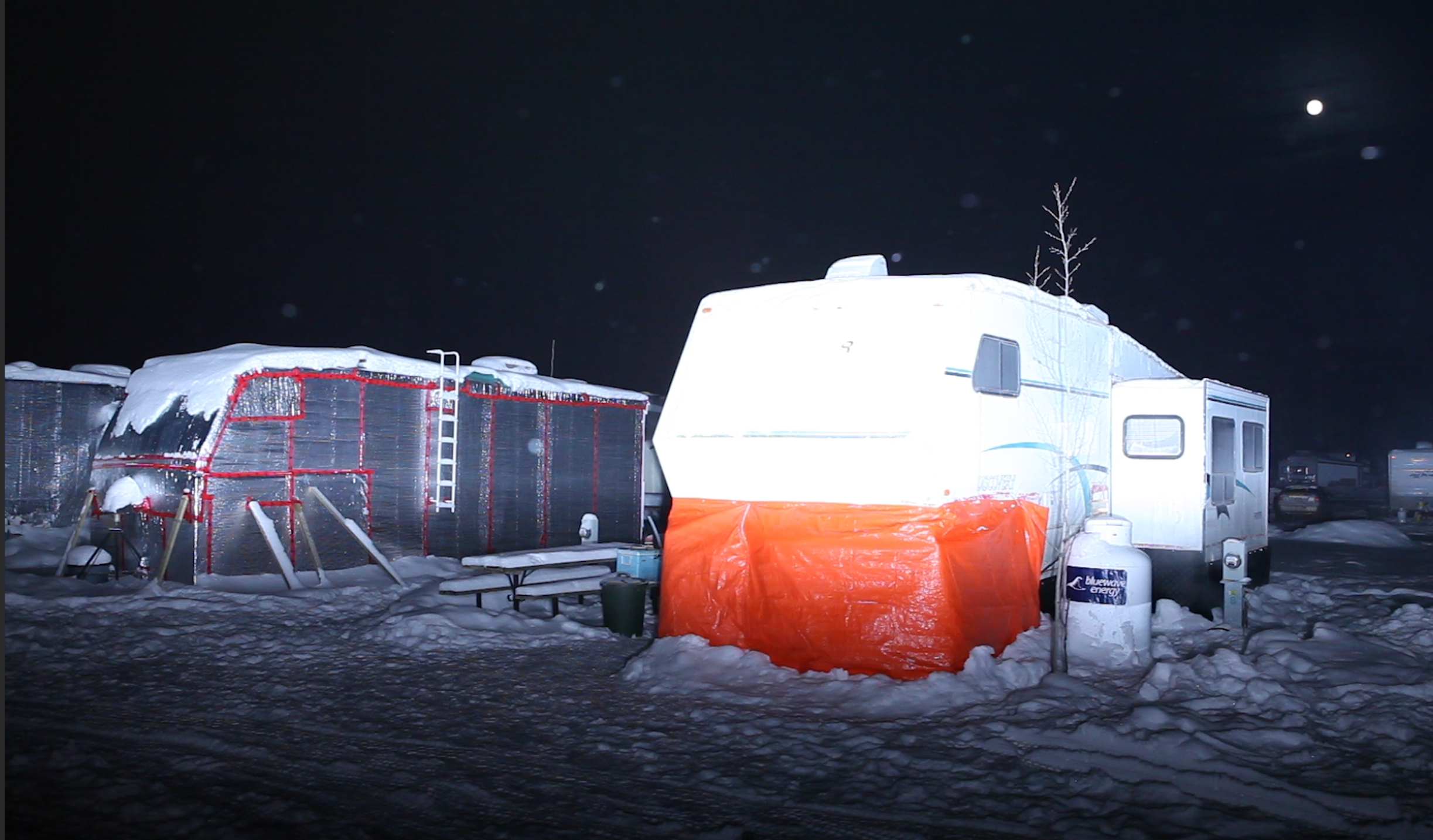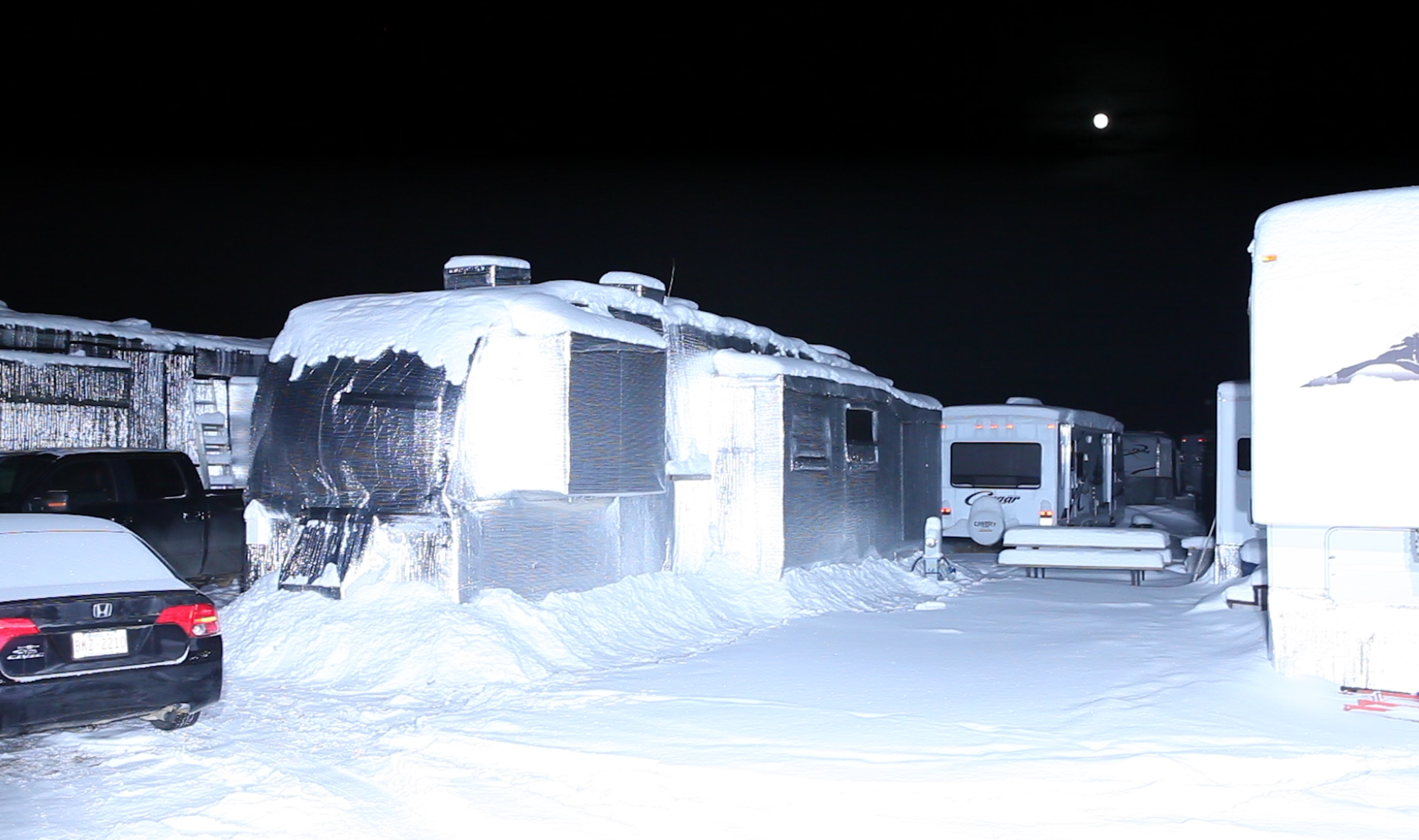Spiritual Myopia


Spiritual Myopia , 2018, (collaboration with David Kelley)
Spiritual Myopia is a multi-part installation that engages with the infrastructure of petro-industry in the OIl Sands of Northern Canada. The project brings together ideas of landscape, real estate, parenting, migration, drone surveillance, and physical touch into the same work. We have gathered a collection of documentary artifacts that index the site through various levels of myopia or partial vision. The first part of the project is an essay film/Power Point projection that culls together photographs, scans, aerial videos of mines and the boreal forests, and strobic video of the new housing developments. The second part is a group of photographs made from a scanner which constitute fragments of extreme proximity to the land near the mines such as: telephones, tire tracks, fences, weeds and hand drawn maps. This work is performative and choreographic – made by walking over the sites and scanning surfaces. The third part is a series of gold leaf and black & white photo collages. These images are of housing developments that are mushrooming all over town. Taken at night by strobe light, the images have a forensic immediacy.
Spiritual Myopia was produced in Athabasca Oil Sands in Ft McMurray Alberta in Canada in 2013. In Fort McMurray, migrant workers from Newfoundland, Somalia, South Asia, and Australia have come for jobs in the mines. These intimate networks of families reconstruct new geographies of care and support in the absence of their homes. Meanwhile these massive industrial projects displace indigenous communities and spoil the natural resources. The oil, which doesn’t have viable pipeline, is carried by rail car through densely populated towns, resulting in a high number of fires and spills. The energy demand in North America, combined with the instability of Middle East has made the Oil Sands a viable source energy. Ft McMurray, like other boomtowns fueled by resource extraction and development, exposes degrees of what the geographer David Harvey has call time-space compression, where culture and land are changing at a pace too rapid for conscious reflection.